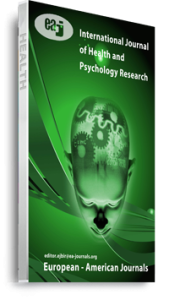Predictors of students’ mental wellbeing were studied among 348 undergraduates selected through random cluster sampling from the Faculties of Social Sciences of three higher institutions in Eastern Nigeria. Participants’ ages ranged from 16 to 33 years, with the mean age of 23.15 and a standard deviation of 3.46. Variables considered include academic stress, substance abuse, age and institution type. Descriptive Cross-Sectional Design was employed while Standard Multiple Regression and 2-Way ANOVA were adopted for data collection and analyses respectively. Results revealed that academic stress, substance abuse and age had significant inverse relationship with mental wellbeing. Mental wellbeing and academic stress did not differ across gender, while type of institution influenced academic stress (P< .05). The researchers recommended stronger awareness of the implications of drug use and the re-structuring of academic programmes that can minimize stress. Also, the need for a free functional counseling unit to enable students obtain professional advice that will help promote mental well being was advocated.
Keywords: Academic Stress, Eastern Nigeria, Mental Wellbeing, Substance abuse, Undergraduates

